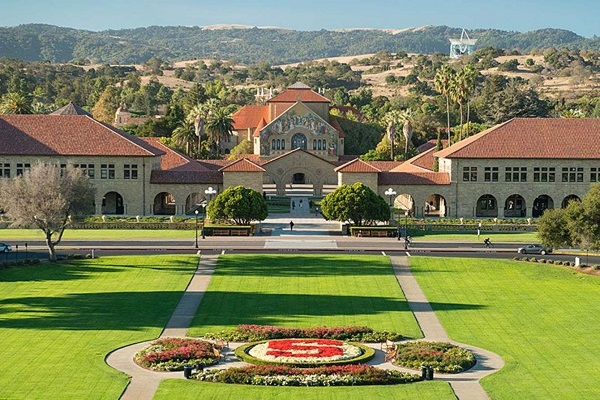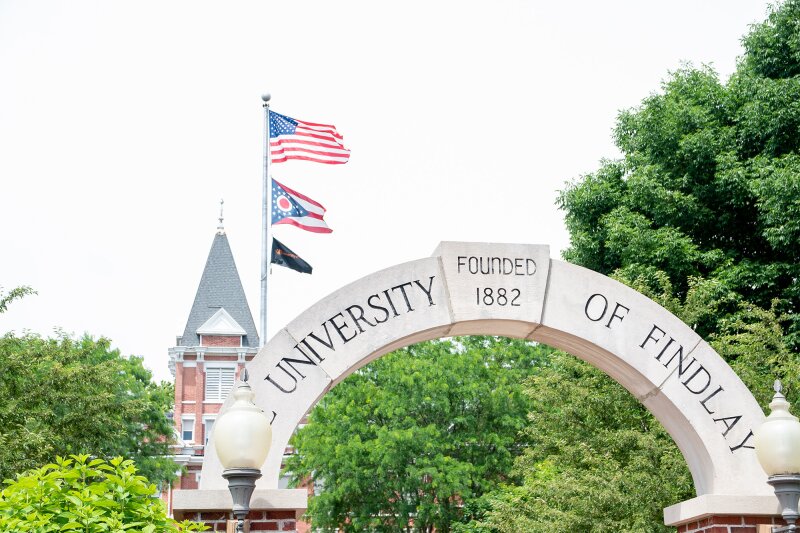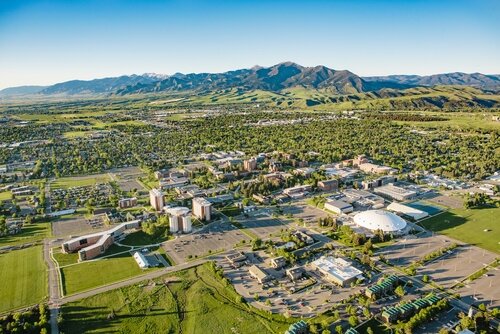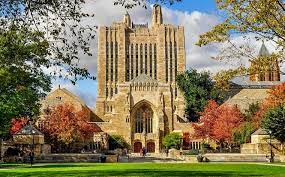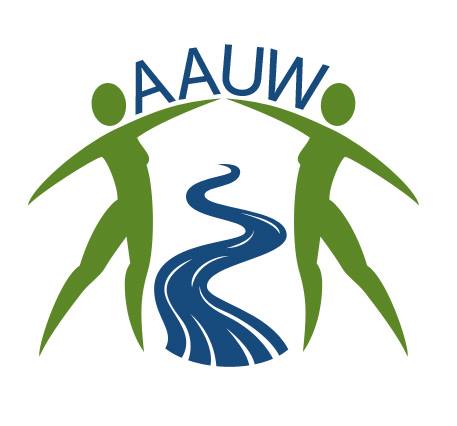If you’re aspiring to work in the USA and need visa sponsorship, you’ve found the right place. We’re here to introduce you to incredible job opportunities that include visa sponsorship, making your dream of working in the USA a reality
Whether you’re a seasoned professional, a recent graduate, or simply exploring new opportunities, many U.S. companies are eager to sponsor visas and help you jumpstart your career. Numerous industries offer visa sponsorship programs for qualified individuals, opening doors to those ready to take the next step. In this guide, we’ll explore various sectors and job roles that offer visa sponsorship, helping you discover the perfect match for your skills and ambitions. Our goal is to steer you toward exciting career opportunities that can pave the way for your professional journey in the U.S.
Understanding Visa Sponsorship
Visa sponsorship means that a company or individual is endorsing you and assisting with the necessary paperwork to secure your visa or green card. It’s like having a trusted advocate in the country who vouches for you and helps smooth the process, ensuring you’re cleared to enter and work in the U.S.
Who Can Act as a Sponsor?

- Organizations: Companies, schools, or even government agencies can act as your sponsor, helping you navigate the visa process.
- Individuals: Family members, your spouse, or even your employer can also sponsor you, providing the necessary support to help you obtain your visa or green card.
Types of Visas That Need Sponsorship
- Some Temporary Work Visas: For short-term work visas, you might need a sponsor depending on the specific visa requirements of the country you’re moving to.
- Visas for Permanent Jobs: When a company abroad wants to hire you for a long-term position, they typically need to assist with the visa process and act as your sponsor.
- Visas for Family: If you have close family members, like a parent, spouse, or child already living in the country, they may need to sponsor your visa as part of the process.
In short, visa sponsorship is crucial. It plays a key role in helping the government approve your entry into the country.
Who Can Get Visa Sponsorship?

Who gets a sponsored visa depends on two main factors: the country’s requirements and the type of visa you’re applying for. Understanding these factors can make the process much smoother.
Let’s break it down:
Rules of the Country:
Each country has its own laws about who can enter. They typically consider:
- Language skills: How well you speak their official language.
- Education: Your level of schooling or degrees earned.
- Health: Whether you’re in good health.
- Finances: Whether you have enough money to support yourself.
- Job experience: Relevant work experience and skills.
The Visa You Want:
- Family-Based Visas: Your eligibility depends on your relationship with the sponsor. Spouses, children, and parents usually qualify, but specific rules apply.
- Permanent Job Visas: These focus on your qualifications, including professional skills, certifications, and educational background.
- Temporary Work Visas: Factors include specialized skills, your country of origin, and how long you intend to work.
Other Important Considerations:
- Travel Rules: Your nationality can play a big role in visa approval.
- Criminal Records: You must have a clean criminal background.
- Security Checks: In some cases, you’ll need to pass security screenings to ensure you pose no risk.
How to Know if You Qualify for a Visa:
- Consult an expert: Talk to an immigration lawyer or advisor for personalized guidance.
- Do your research: Visit official government websites to understand the specific requirements for the visa you’re seeking.
Here’s What You Need for Your Visa
When you’re ready to apply for your visa, you’ll likely need to gather the following documents:
- Proof of work experience: This includes job history and recommendation letters from people who can vouch for your work.
- Birth or marriage certificate: If applicable, provide documents like your birth certificate or marriage certificate.
- Financial proof: Bank statements or tax documents to show you can support yourself financially.
- Passport and ID: A valid passport and any identification cards.
- Police clearance: A certificate proving you have a clean criminal record.
- Educational documents: Report cards, diplomas, or degrees to showcase your educational background.
- Medical reports: If required, medical check-up documents.
Important Tips:
- Requirements can vary: The paperwork needed may change based on the type of visa and country.
- Accuracy matters: Missing or incorrect documents can cause delays or even rejection of your visa application.
- Seek legal advice: It’s always a good idea to consult with an immigration lawyer to ensure you’re on the right track.
How Can You Find a Job in the US That Will Offer Visa Sponsorship?
If you’re aiming to find a job in the U.S. that offers visa sponsorship, careful planning is essential. You’ll need the right skills, a solid network, and a strategic approach to job applications. Here’s a guide to help you through the process:
1. Develop In-Demand Skills
- Research U.S. Job Market Needs: Start by exploring which skills are in high demand in the U.S., especially in your field. Areas like tech, healthcare, and engineering are often popular for visa sponsorship.
- Enhance Your Education: Consider pursuing additional certifications, degrees, or specialized training. Showing that you’re dedicated to continuous learning can make you more attractive to employers seeking top talent.
2. Look for Employers That Sponsor Visas
- Target the Right Companies: Focus on businesses known for sponsoring visas. Look for job listings or company websites that mention phrases like “visa sponsorship” or “H-1B sponsor.”
- Network Strategically: Build connections both online and in person. Attend industry events, engage with professionals on LinkedIn, and build relationships with recruiters in your field. Networking can help you access job openings that aren’t advertised and connect with employers willing to sponsor visas.
3. Make Your Job Application Stand Out
- Tailor Your Resume and Cover Letter: Customize your resume to fit the specific job you’re applying for. Highlight your relevant skills, achievements, and how you can add value to the company. Use concrete numbers to showcase your success and contributions.
- Prepare for Interviews: Research the company and its culture to show you’re genuinely interested. Practice common interview questions and come up with clear, concise answers. Be prepared to discuss your career goals and why the position is a good fit for you.
4. Use Job Sites and Networking Tools
- Explore Job Sites: Search job platforms like Indeed, LinkedIn, Glassdoor, and specialized job boards for openings that mention visa sponsorship. Set up job alerts to stay updated when new positions are posted.
- Build Professional Connections: Join online groups, forums, and industry associations related to your field. These networks can help you discover visa sponsorship opportunities and connect you with professionals who may recommend jobs.
5. Consider Internships or Training Programs
- Seek Internship or Training Opportunities: Some U.S. companies offer visa sponsorship through internships or training programs. These roles allow you to gain valuable experience and increase your chances of being hired full-time with sponsorship.
- Explore Educational Partnerships: Look for programs that partner with U.S. companies to provide internships or training. These connections can help you get hands-on experience and establish contacts with potential visa sponsors.
By refining your skills, focusing on visa-friendly employers, and ensuring your applications and interviews are top-notch, you can improve your chances of securing a job in the U.S. that offers visa sponsorship.
How to Look for USA Visa Sponsorship

When you’re trying to find USA visa sponsorship opportunities, thorough research and networking are essential. Here’s a guide to get you started:
1. Know What Visa You Need
Identify the visa that fits your situation, as this will shape how you qualify and apply. For skilled jobs, you might need an H-1B visa, or an L-1 if you’re transferring within a company. Students usually require an F-1 visa, while family visas like F-2 or IR-1 are for family-based sponsorships. Understanding the visa that suits your needs will help you find the right sponsorship efficiently.
2. Find Potential Sponsors
Look for companies, organizations, or individuals with a history of offering visa sponsorships. Global companies, universities, research institutions, and even small businesses can be potential sponsors. Research their hiring practices and see if they value diversity. Narrowing your search to companies that are a good match for your skills increases your chances of success.
3. Use Online Resources
Platforms like LinkedIn, Glassdoor, and Indeed are great for finding companies that offer visa sponsorships. Use search filters like “visa sponsorship available” when looking for job listings. Additionally, join professional networks and alumni groups for tips and possible referrals. These inside connections can be key in finding the right opportunities.
4. Network with Professionals
Networking is one of the most effective ways to discover visa sponsorship opportunities. Attend industry events, workshops, and job fairs to meet professionals who can guide you. Share your career goals and ask about potential visa sponsorships in your field. Building authentic connections can open doors to sponsorship through referrals.
5. Reach Out Directly to Companies
Identify companies known for sponsoring visas and reach out to them directly. Make your outreach stand out by highlighting your skills and how you can contribute to their team. In your cover letter, express your interest in visa sponsorship while showcasing an understanding of their needs. This proactive approach can initiate meaningful discussions about sponsorship.
6. Explore Government Programs
Several U.S. government programs facilitate visa sponsorship. Programs like the J-1 Exchange Visitor Program or the H-2B Program for non-agricultural workers can provide work experience, cultural exchanges, and sponsorship. Research these programs to discover how they might fit your career goals.
7. Stay Persistent and Flexible
The visa sponsorship process can be competitive and time-consuming, so persistence is key. Keep refining your strategy, networking, and improving your skills. Being open to different job roles, locations, and visa types can expand your opportunities. Flexibility in your search can lead to unexpected and rewarding possibilities.
By following these steps, you’ll be better positioned to find U.S. visa sponsorship opportunities and navigate the process successfully.
Companies That Offer Visa Sponsorship
Finding visa sponsorship in the U.S. can be challenging, but certain companies and strategies can increase your chances. Here’s an overview of companies that typically offer visa sponsorship and tips to boost your chances of landing a job with sponsorship:
1. Tech Giants
Big technology companies like Google, Amazon, Microsoft, Apple, and Facebook are well-known for sponsoring visas. They seek global talent, especially in software development, data science, AI, and IT roles.
2. Consulting Firms
Consulting firms such as Deloitte, Accenture, PwC, and EY regularly sponsor visas for foreign workers, particularly for management, technology, and advisory consulting roles.
3. Financial Institutions
Large financial companies like Goldman Sachs, JPMorgan Chase, Citigroup, and Morgan Stanley often sponsor visas for professionals in finance, investment banking, accounting, and other financial services.
4. Pharma and Healthcare
Companies such as Johnson & Johnson, Pfizer, and Merck may sponsor visas for healthcare professionals, scientists, researchers, and other technical experts in the healthcare field.
5. Engineering and Manufacturing
Companies like Boeing, Lockheed Martin, and General Electric often sponsor visas for engineers, technicians, and skilled professionals in various engineering and manufacturing sectors.
6. Consumer Goods and Retail
Major retail and consumer goods companies, such as Procter & Gamble, Nike, Walmart, and Target, sometimes sponsor visas, especially in fields like marketing, supply chain management, and retail operations.
7. Startups and Smaller Companies
Startups and smaller businesses are also potential sponsors, especially if they need specialized skills that are hard to find locally. These companies may be more flexible in hiring international talent if they see the value in your expertise.
8. Educational and Research Institutions
Universities and research institutions sponsor visas for professors, researchers, and scholars who contribute to their academic and research programs.
How to Boost Your Chances of Sponsorship
1. Develop In-Demand Skills
Focus on acquiring specialized skills that are in high demand but scarce in the U.S. Examples include advanced tech skills (software development, AI), healthcare expertise (nursing, medical research), or specific engineering capabilities.
2. Build a Professional Network
Networking is crucial to finding visa sponsorship opportunities. Attend industry conferences, workshops, and job fairs, and engage with professionals on platforms like LinkedIn. Building connections increases the likelihood of learning about unadvertised job openings and getting recommendations.
3. Target Companies Known for Sponsoring Visas
Direct your job search to industries and companies with a reputation for sponsoring visas. Use job boards like LinkedIn, Glassdoor, and Indeed to filter jobs that explicitly mention visa sponsorship.
4. Show Off Transferable Skills
Highlight skills that apply across different industries, such as project management, communication, problem-solving, or leadership. These can make you a more versatile and attractive candidate for potential sponsors.
5. Show Adaptability and Cultural Fit
Demonstrate your ability to adjust to new environments and work effectively with diverse teams. Many U.S. companies value candidates who are adaptable, culturally aware, and capable of contributing to a global workforce.
6. Be Open to Flexible Opportunities
Consider applying for temporary, part-time, or contract roles that could lead to full-time employment with visa sponsorship. Being flexible about job type and location may help you get your foot in the door.
Questions You Might Get Asked in a US Visa Interview

During a U.S. visa interview, the consular officer will ask questions to confirm that you meet the visa requirements and intend to follow U.S. immigration laws. The interview focuses on your plans for the trip, your financial situation, and your ties to your home country. Here’s a breakdown of common questions you may encounter:
1. Purpose of Your Visit
- Why are you visiting the United States? You should clearly explain whether it’s for work, tourism, study, or any other valid reason.
2. Duration of Stay
- How long will you stay in the U.S.? Provide specific details about the length of your trip and ensure that it aligns with your visa application.
3. Financial Capability
- How will you pay for your trip? Show proof that you have enough funds to cover your expenses, such as bank statements, a sponsor letter, or proof of employment.
4. Ties to Your Home Country
- What are your ties to your home country? Strong connections like a job, family, or property can demonstrate that you intend to return after your visit. These are key to proving you don’t plan to overstay your visa.
5. Employment
- Where do you work and what do you do? Explain your current job, position, and how long you’ve been employed, along with any proof like an employment letter or pay stubs.
6. Family Situation
- Are you married or do you have children? Questions about your family life help establish your ties to your home country.
7. Travel History
- Have you traveled to other countries? If you’ve traveled internationally before and complied with visa rules, it can strengthen your case.
8. Criminal and Immigration History
- Have you ever had issues with the law or immigration rules? Be honest about any past legal or immigration issues, as hiding such details can lead to a visa denial.
9. Education and Skills
- What is your educational background or job skills? If relevant to the visa, you may need to talk about your qualifications, degrees, or certifications.
10. Previous U.S. Visits
- Have you been to the U.S. before? Be prepared to discuss any prior U.S. visits and whether you followed the terms of your previous visa.
Tips for Success:
- Be Honest: Always tell the truth in your answers.
- Be Consistent: Ensure your answers match the information you provided in your application and documents.
- Provide Documentation: Bring all required paperwork (bank statements, employment letters, etc.) to back up your answers.
- Stay Calm and Clear: Remain calm during the interview and answer questions clearly and confidently.
Searching for a job in the USA that offers visa sponsorship can be a significant step forward in your career. Understanding the different types of visas, crafting a compelling application, and identifying potential sponsors are crucial components that can enhance your chances of securing a job visa and realizing your work aspirations in the United States.
Investing time and effort into obtaining a job with visa sponsorship is well worth it. This journey can open doors to invaluable opportunities and enriching life experiences. By effectively demonstrating your skills and being well-informed about the process, you’ll be well on your way to achieving your goal of working in the USA.
In summary, to successfully navigate the search for job visa sponsorship opportunities in America, begin by researching the available visa options. Focus on developing a strong application and build connections with potential sponsors. By showcasing your value as an asset to U.S. employers, you can significantly increase your chances of obtaining the job visa sponsorship you desire.

